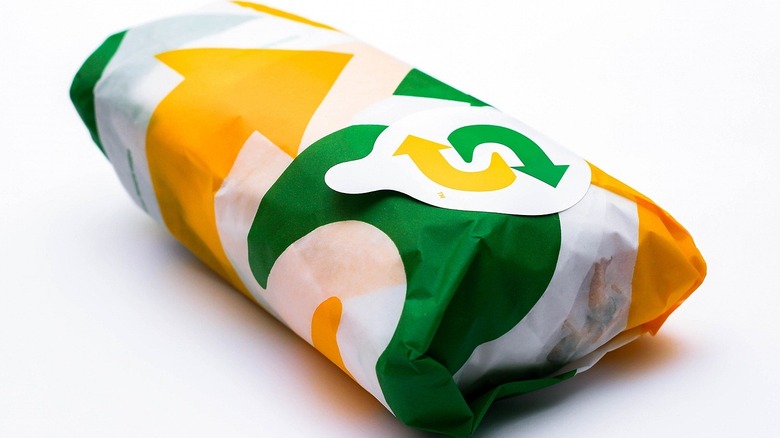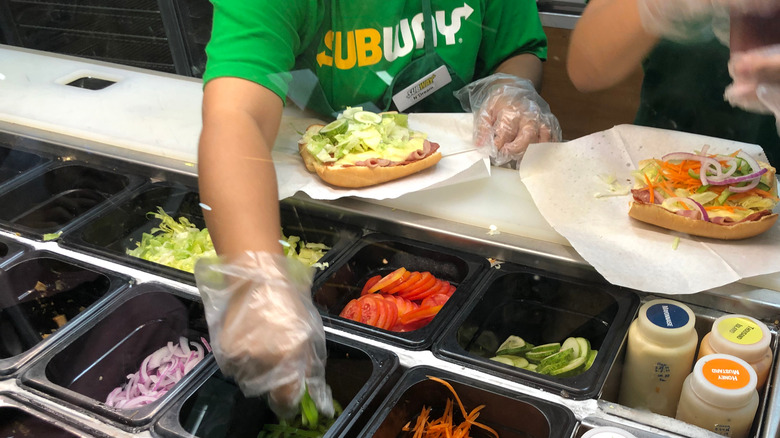Subway's Sustainability Rules Aren't As Great As They Want Us To Think
A sustainability plan is essential to a business' continued success, argues McKinsey & Company. According to the management consulting firm, having environmental, social, and governance policies in place results in greater efficiency, improved relationships with authorities, and boosted employee satisfaction, all of which ultimately help a company generate more money. And yet, despite these proposed positives, only 60% of businesses have developed a sustainability plan, reports Forbes — potentially leaving them vulnerable to future financial strain.
Perhaps Subway should heed these warnings before it is too late. Even though the famous sandwich brand operates over 21,000 restaurants in the U.S. (achieving average per-store sales of $434,000 a year, according to Restaurant Business), the company's sustainability plan appears to be somewhat disjointed. Even though the chain's current sustainability efforts include improvements in packaging, responsible sourcing, climate change, and conservation, some of the proposals appear to be aspirations rather than firm commitments, while others fall outside of the company's direct control.
Subway relies on franchisees to implement some of its sustainability plans
For its responsible sourcing commitments, Subway says it has a stringent policy to ensure worker rights at supplier companies, and that it uses sustainable palm oil products. However, for objectives including sustainable fishing and eco-friendly farming, the company touts phrases like "long-term goal" and "strive to do our part," rather than showing evidence that the ambitions have actually been achieved.
Acknowledging a wish to improve animal welfare for hens, Subway admits that it does not manage the operations or supply chain of master franchisees. This presents a potentially large obstacle to Subway's sustainability plan because master franchisees can be responsible for hundreds of restaurants, notes Nation's Restaurant News. Similarly, although Subway explains that it assists franchisees and suppliers to reduce energy demand and greenhouse gas emissions, it doesn't explicitly confirm that it obligates such organizations to do so. There is little detail provided in this plan, with Subway merely aiming to reduce deforestation and water wastage, and stating that restaurants can recycle and compost wasted food if they want to.
Subway's packaging commitments are slightly more rigorous, noting a ban on expanded polystyrene and the further purchase of packaging with potentially harmful chemical PFAS. However, its Sustainable Packaging Policy only "aspires to reduce our packaging footprint" with measures including removing unnecessary packaging, using recyclable products, and reducing carbon footprint. No target completion dates are shown, and the document appears to have been published in 2019. As the BBC reports, fast food chains are major contributors to greenhouse gas emissions. If Subway continues to be vague about its sustainability actions, environmentally minded consumers could start to visit other restaurants.

